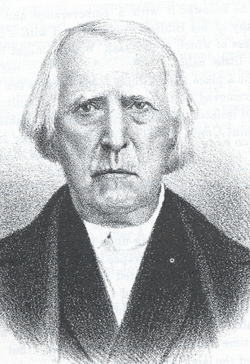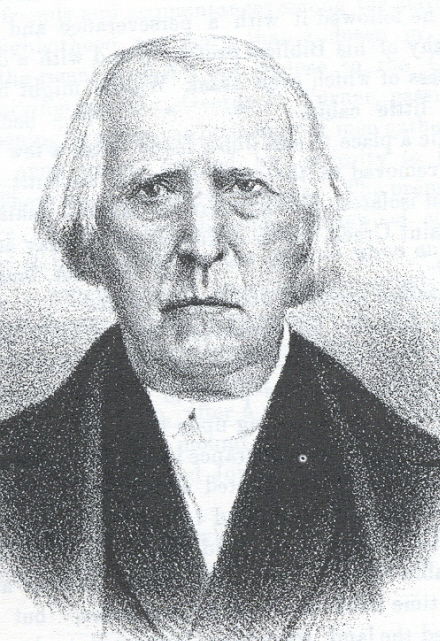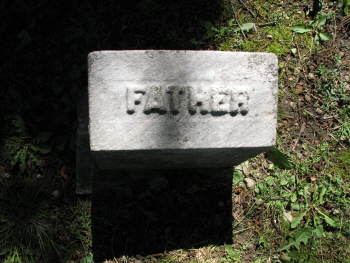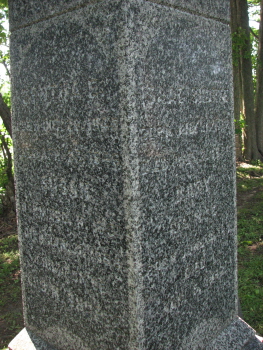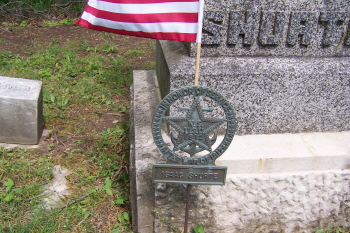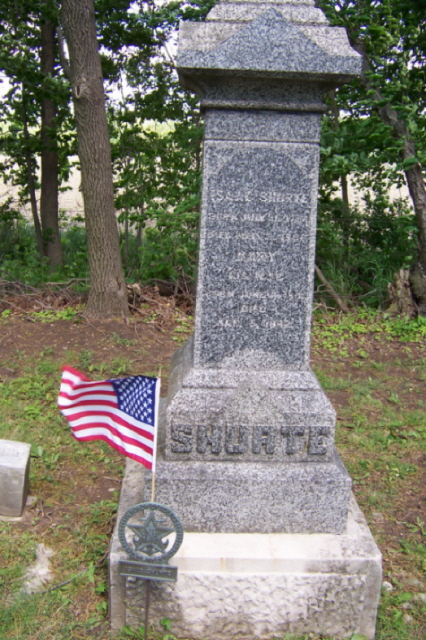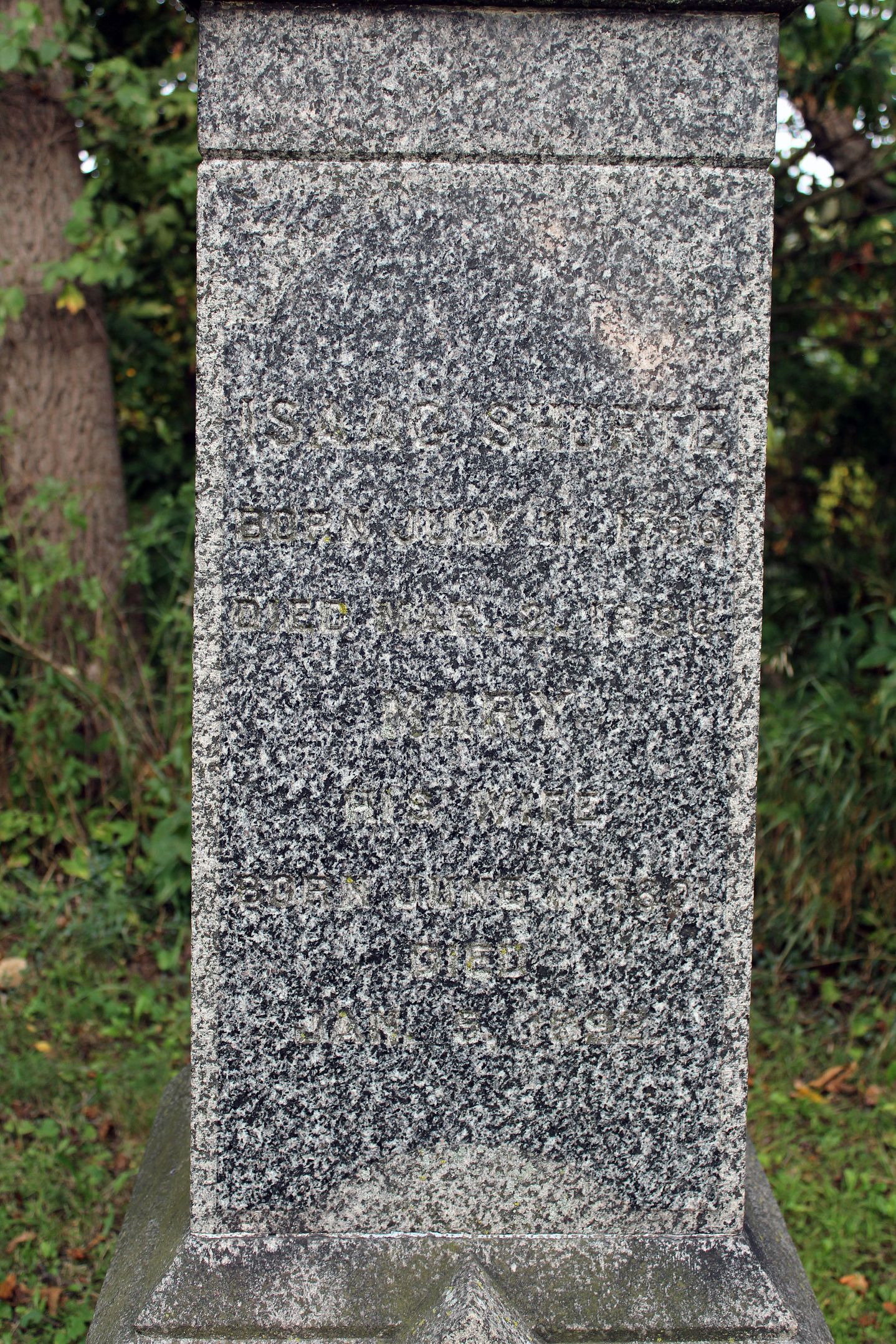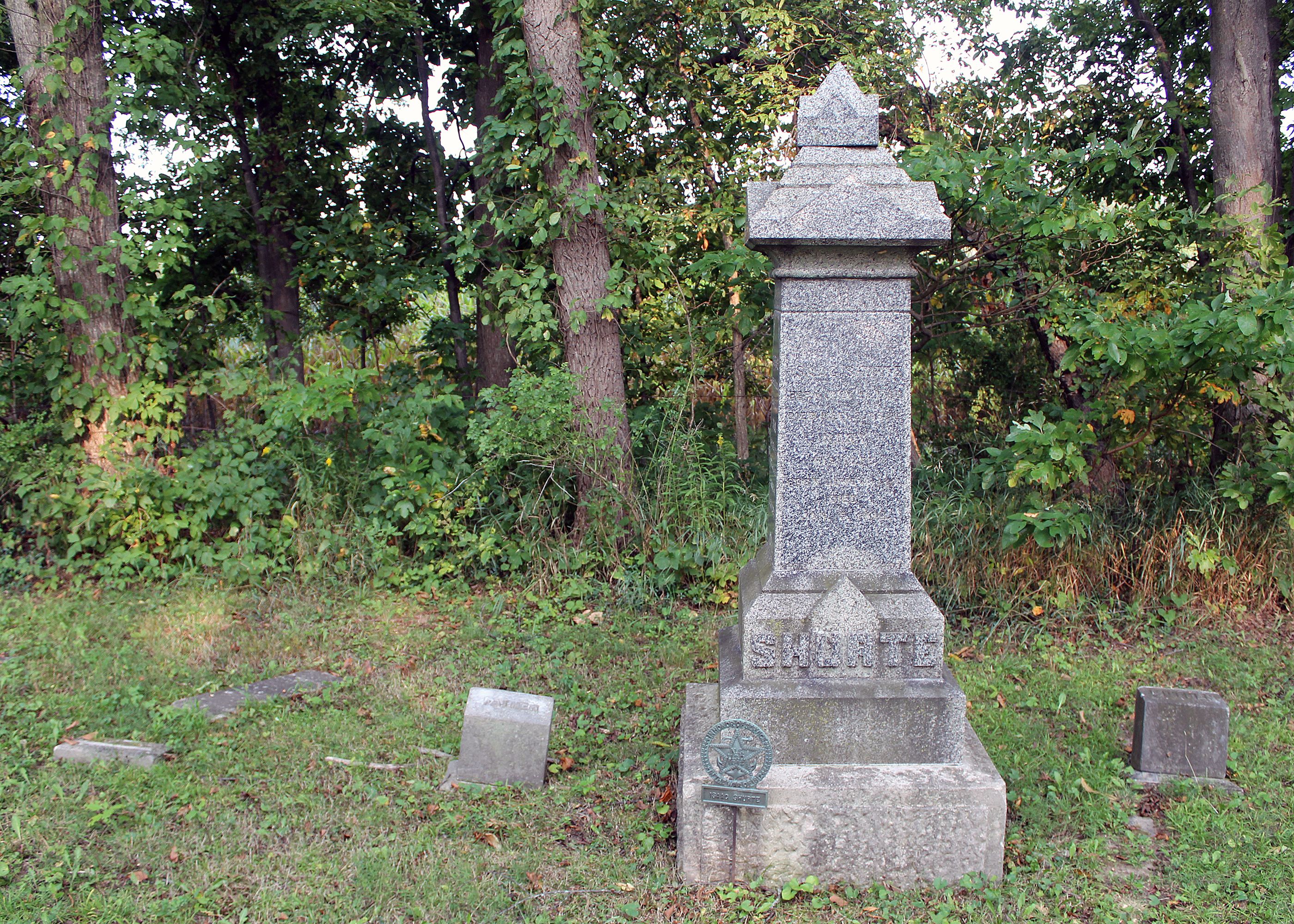When he was only one year old, his parents moved to Sussex County, New Jersey, where Isaac would live until he was 21. At that time, the adventuresome young man set out on foot to cover the 500-600 miles between him and Pittsburgh. He made that difficult, long trek, but his vision didn't stop where the trip ended. Instead, he set his sights on Cincinnati, and so in Pittsburgh, he obtained a small skiff. He put the boat in the Ohio River and rowed it to Cincinnati. Next he crossed open country to get to Butler County, Ohio.
In the next two years in Butler County, Isaac married Mary Wright, daughter of William Wright and Sarah Baldwin. They started a family of their own, but this period of settlement wasn't a time of rest – it was a time of preparation. Isaac had his sights on new land, and he intended to lead the way as a pioneer to LaGrange Prairie in Cass County, Michigan.
In September of 1827, Isaac felt the family was ready to move. It would be done in stages, with the first stop at Niles, where he built a small cabin. The family stayed here for two years, after which Isaac sold the property for $20 and set out for LaGrange.
He brought with him three yoke of cattle, one pair of horses, milch cows, and hogs. A lack of food claimed its victims. Isaac admitted to a biographer that he became somewhat homesick on the trail, stopping for a dead animal or to care for ill children, and to fix broken wagon wheels that couldn't easily cover the muddy rutted roads.
When he ran out of food for the livestock, and supplies were low for his family, Isaac stopped at a Mission, where threshed wheat. For every eight bushels threshed, the next bushel would be given to Isaac for his own use. At that rate, he could "earn" a bushel a day, and when he had seven, he took the wheat to Ford's Mill, where it was ground. Then Isaac boated it to the Mission, where he had the wheat bolted to a hand cart.
That done, Isaac was prepared for the final leg of the journey. He bought a claim to a homestead in LaGrange in exchange for a horse, saddle and bridal. One they arrived, he traded a wide cut of leather (from which the buyer might cut soles for a pair of boots) to gain two bushes of seed wheat.
Isaac was a man who expected things to be hard, and he didn't flinch in the face of difficulties. He needed to plant, but he didn't have a hoe. So he went seven miles and borrowed one. Because of the timing of his arrival, he didn't have time to remove the existing grass and weeds before sewing his crop. He expected to raise only enough to feed his livestock, but the first crop did so well that in 1830 he bought the first fanning mill to be used in the township.
Soon family joined him. Eli Bonnell was married to the sister of Isaac's wife, Mary. William and Mary (Baldwin) Wright were her parents. When Mary's younger brother, David, died in his first season in LaGrange in 1829, he was buried on Isaac Shurte's homestead. And we know he had a profound influence on Susannah, Mary's sister, because Susan and her husband Amos Webster named their first son Isaac Shuart Webster.
We get a sense of why Isaac was so respected, both within the family and his community, and a glimpse of his persistence and willingness to do whatever it took to stay on his land with words directly attributed to Isaac: "We lived most of the first two years after coming to LaGrange on corn and buckwheat bread, excepting wheat bread for company and on rare occasions. The yarn for all our wear, both woolen and linen, was spun in the house, and for a number of years after coming to Michigan, we did not have a cotton sheet in the home." Wife Mary toiled as hard as he, given all of her responsibilities for their survival.
Over the years, both prior to their journey and after, the Shurte couple had ten children: Sally M., Mary A., Elizabeth, Margaret, Francis M., Susan, William, Sarepta, Henry, and Cynthia R. Shurte.
In 1832, Isaac and William Wright partnered in the purchase of apple seeds from New York. Isaac didn't trust the seed, calling it "Yankee seed," but it proved to be a good crop.
Food was always an issue for a pioneer settler, because one hailstorm could wipe out a year's crop, and drought could kill the animals within a week. As Captain of the Black Hawk Society – a militia raised to defend the settlement against Indian attach – Isaac was ordered out for service several times, during which he was expected to provide enough rations to sustain himself for three days. On more than one occasion, it was more food than the entire family had in the house.
Through all the adversity, Isaac Shurte bought more and more land, staked his homestead, held several offices of public trust (in fact, the first town elections were held in his home), and he was known for his fine breed of horses.
When he was only one year old, his parents moved to Sussex County, New Jersey, where Isaac would live until he was 21. At that time, the adventuresome young man set out on foot to cover the 500-600 miles between him and Pittsburgh. He made that difficult, long trek, but his vision didn't stop where the trip ended. Instead, he set his sights on Cincinnati, and so in Pittsburgh, he obtained a small skiff. He put the boat in the Ohio River and rowed it to Cincinnati. Next he crossed open country to get to Butler County, Ohio.
In the next two years in Butler County, Isaac married Mary Wright, daughter of William Wright and Sarah Baldwin. They started a family of their own, but this period of settlement wasn't a time of rest – it was a time of preparation. Isaac had his sights on new land, and he intended to lead the way as a pioneer to LaGrange Prairie in Cass County, Michigan.
In September of 1827, Isaac felt the family was ready to move. It would be done in stages, with the first stop at Niles, where he built a small cabin. The family stayed here for two years, after which Isaac sold the property for $20 and set out for LaGrange.
He brought with him three yoke of cattle, one pair of horses, milch cows, and hogs. A lack of food claimed its victims. Isaac admitted to a biographer that he became somewhat homesick on the trail, stopping for a dead animal or to care for ill children, and to fix broken wagon wheels that couldn't easily cover the muddy rutted roads.
When he ran out of food for the livestock, and supplies were low for his family, Isaac stopped at a Mission, where threshed wheat. For every eight bushels threshed, the next bushel would be given to Isaac for his own use. At that rate, he could "earn" a bushel a day, and when he had seven, he took the wheat to Ford's Mill, where it was ground. Then Isaac boated it to the Mission, where he had the wheat bolted to a hand cart.
That done, Isaac was prepared for the final leg of the journey. He bought a claim to a homestead in LaGrange in exchange for a horse, saddle and bridal. One they arrived, he traded a wide cut of leather (from which the buyer might cut soles for a pair of boots) to gain two bushes of seed wheat.
Isaac was a man who expected things to be hard, and he didn't flinch in the face of difficulties. He needed to plant, but he didn't have a hoe. So he went seven miles and borrowed one. Because of the timing of his arrival, he didn't have time to remove the existing grass and weeds before sewing his crop. He expected to raise only enough to feed his livestock, but the first crop did so well that in 1830 he bought the first fanning mill to be used in the township.
Soon family joined him. Eli Bonnell was married to the sister of Isaac's wife, Mary. William and Mary (Baldwin) Wright were her parents. When Mary's younger brother, David, died in his first season in LaGrange in 1829, he was buried on Isaac Shurte's homestead. And we know he had a profound influence on Susannah, Mary's sister, because Susan and her husband Amos Webster named their first son Isaac Shuart Webster.
We get a sense of why Isaac was so respected, both within the family and his community, and a glimpse of his persistence and willingness to do whatever it took to stay on his land with words directly attributed to Isaac: "We lived most of the first two years after coming to LaGrange on corn and buckwheat bread, excepting wheat bread for company and on rare occasions. The yarn for all our wear, both woolen and linen, was spun in the house, and for a number of years after coming to Michigan, we did not have a cotton sheet in the home." Wife Mary toiled as hard as he, given all of her responsibilities for their survival.
Over the years, both prior to their journey and after, the Shurte couple had ten children: Sally M., Mary A., Elizabeth, Margaret, Francis M., Susan, William, Sarepta, Henry, and Cynthia R. Shurte.
In 1832, Isaac and William Wright partnered in the purchase of apple seeds from New York. Isaac didn't trust the seed, calling it "Yankee seed," but it proved to be a good crop.
Food was always an issue for a pioneer settler, because one hailstorm could wipe out a year's crop, and drought could kill the animals within a week. As Captain of the Black Hawk Society – a militia raised to defend the settlement against Indian attach – Isaac was ordered out for service several times, during which he was expected to provide enough rations to sustain himself for three days. On more than one occasion, it was more food than the entire family had in the house.
Through all the adversity, Isaac Shurte bought more and more land, staked his homestead, held several offices of public trust (in fact, the first town elections were held in his home), and he was known for his fine breed of horses.
Family Members
Advertisement
Explore more
Sponsored by Ancestry
Advertisement
